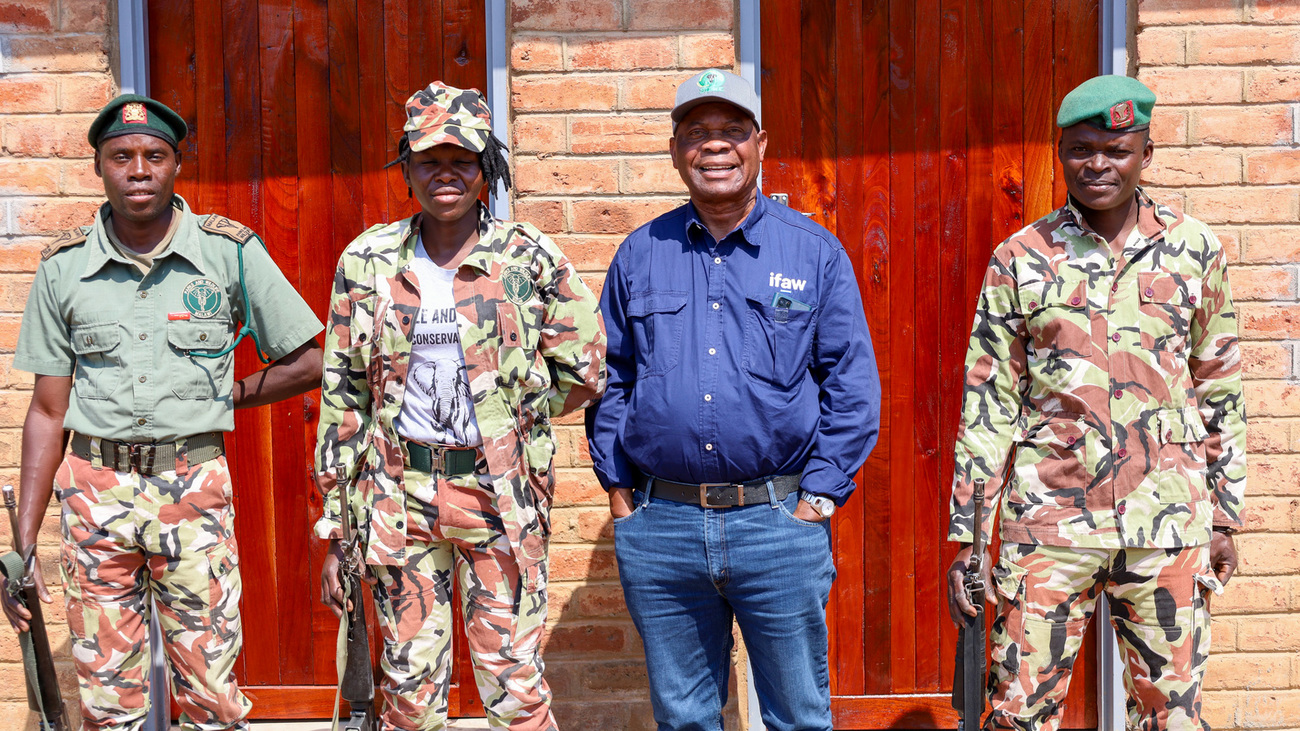Rebuilding hope in Kasungu after fire destroys ranger base
Rebuilding hope in Kasungu after fire destroys ranger base
By Luckmore Safuli
On a scorching, wind-swept afternoon in September 2022, two elite members of the Kasungu National Park commando unit—renowned for their unwavering dedication to protecting wildlife—took a rare moment of rest outside the Dwangwa ranger base. The 2,316-square-kilometre park stretched before them, vast and wild. While their fellow rangers patrolled deep within the forest, they stood guard over the base—unaware that within hours, their sanctuary would be consumed by flames.
“Everything seemed calm,” recalls 34-year-old wildlife officer Rodrick Bamusi, “but we didn’t realise it was the calm before the storm.”

The blaze begins
For Bamusi, who joined the Department of National Parks and Wildlife (DNPW) in 2018, Dwangwa wasn’t just a base—it was a home filled with memories. The first whiff of smoke came without warning. “My colleague, Justin Mkute, smelled it first and called out. We both sprang into action,” he says.
With no time to wait for help, the two battled the inferno alone for over an hour, salvaging a handful of essentials such as uniforms, tents, and patrol rifles. When the flames finally subsided, little remained but ash and charred earth.
Rebuilding Dwangwa ranger base
Three years later, hope rose from the ruins. In 2025, IFAW and DNPW, long-standing partners in conservation, recognised the camp’s strategic importance and joined forces to rebuild.
“We knew Dwangwa was crucial to anti-poaching operations in Kasungu, and we were determined to bring it back stronger than before,” said Patricio Ndadzela, IFAW’s Director of Conservation Partnerships.
The refurbished camp now includes upgraded ranger houses, clean water infrastructure, bathrooms, and a new control room for coordinated response. With space for 18 rangers, it has been reborn as a Rapid Response Unit, ready to protect wildlife across the park’s challenging terrain.
“Rangers are our frontline heroes,” Ndadzela adds. “Through our Room to Roam initiative, we’re ensuring they have the resources, shelter, and support needed to defend the landscapes where elephants and other wildlife can move safely and thrive.”
A new era for Kasungu
For ranger General Mwale, who has served since 2011, the impact is tangible. “This park is a national treasure,” he says. “With IFAW’s support, we feel empowered and motivated to keep poachers away.”
Over the past decade, IFAW’s partnership has helped equip Kasungu’s rangers with vehicles, uniforms, training, and food rations—tools that have dramatically boosted morale and effectiveness.
The results are visible. Poaching incidents have dropped sharply, and wildlife numbers—from elephants to buffalo, zebras, and kudu—are climbing once again.
“Kasungu is coming back to life,” says Ndadzela. “It’s a living example of how Room to Roam works—by connecting landscapes, empowering people, and giving both wildlife and communities a fighting chance for the future.”
Related content
Our work can’t get done without you. Please give what you can to help animals thrive.